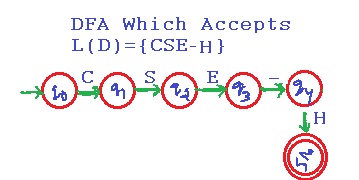Formal Languages and Automat Theory-CSEN2041-V-CSE-H-Semeter V (AY2023-24)-VSP
Enrolment options

Automata theory/ Theory of Computation is the study of abstract computing devices, or "machines." Before there were computers, in the 1930s, A. Turing studied an abstract machine that had all the capabilities of today's computers, at least as far as what they could compute.
In the 1940's and 1950's simpler kinds of machines, which we today call "Finite Automata or Finite State Machines," were studied by several researchers. These automata, proposed initially to model brain functions, were extremely useful for various other purposes. Some of them are given below:
1. Software for designing and checking the behavior of digital circuits.
2. The "lexical analyzer" of a typical compiler, that is, the compiler component that breaks the input text into logical units, such as identifiers, keywords, and punctuations.
3. Software for scanning large bodies of text, such as collections of Web pages, to find occurrences of words, phrases, or other patterns.
4. Software for verifying systems of all types that have a finite number of distinct states, such as communications protocols or protocols for the secure exchange of information.